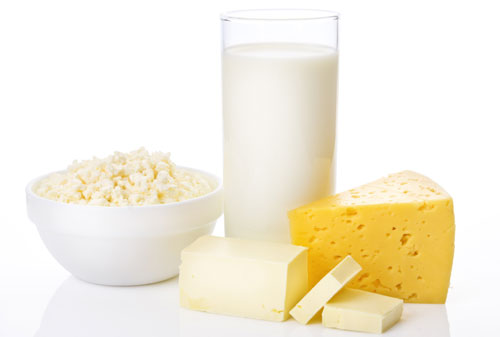

by Corey Geiger, Managing Editor
There is a remarkable rebound beginning to take shape. Dairy fats are making a comeback, as butter production reached its highest point since 1941 last year. That was due in part because, after a half century of relentless attacks and misguided facts, the veil has finally been pulled back on some rather flawed research that said the fats found in butter, meat and cheese led to more heart disease and a host of other ailments.
Don't just take our word on this subject. Instead, read the book The Big Fat Surprise: Why Butter, Meat and Cheese Belong in a Healthy Diet, written by Nina Teicholz and distributed by Simon & Schuster.
So compelling is the case being made by Teicholz, that two highly respected publications - The Wall Street Journal and The Economist magazine - highlighted the recent turn of events. In fact, The Wall Street Journal devoted two pages to the subject in May.
Looking back, Time magazine covered the anti-fat topic in tremendous detail in 1961 when it placed Ancel Keys on the cover. Keys was the leading researcher who championed the flawed and even biased research that vilified dairy and all animal-based fats as artery clogging and heart attack causing nutrients. How did so many buy into this theory?
As The Economist pointed out, "The case against fat would seem simple. Fat contains more calories, per gram, than do carbohydrates. Eating saturated fat raises cholesterol levels, which in turn is thought to bring on cardiovascular problems."
After a half century of the anti-fat mantra, American health is still headed in the wrong direction. We now have even higher obesity rates than in the days of Ancel Keys. The incidence of diabetes climbs skyward. Some researchers and nutritionists now theorize that when fats were replaced by carbohydrates, the body's insulin control went out of kilter.
How big a shift took place between fats and carbohydrates? "So much so that Americans consumed nearly 25 percent more carbohydrates in 2000 than they had in 1971," reported The Economist.
For dairy producers interested in dairy product promotion, Teicholz's book should be the next one on your reading list. What better case can be made for dairy than Teicholz's 479-page investigation and ensuing conclusion? I can think of none.
"Our half-century effort to cut back on the consumption of meat, eggs and whole-fat dairy has a tragic quality," The Wall Street Journal pointed out on May 3. "More than a billion dollars have been spent trying to prove Ancel Key's hypothesis, but evidence of its benefits has never been produced. It is time to put the saturated-fat hypothesis to bed and move on to test other possible culprits for our nation's health woes."
I'll lift a glass of whole milk to toast that statement.
Order your copy of Teicholz's book by going to the following website: www.thebigfatsurprise.com.





